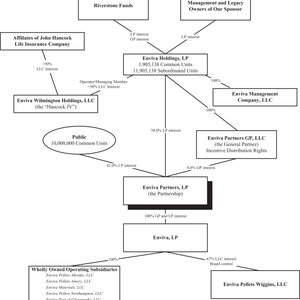Enviva begins trading on NYSE, provides update on pellet projects




Enviva Partners LP
April 29, 2015
BY Erin Voegele
Advertisement
Advertisement
Related Stories
The U.S. Energy Information Administration currently predicts renewables will account for 23% of U.S. electricity generation this year, increasing to 25% next year, according to the agency’s latest Short-Term Energy Outlook, released May 7.
The U.S. exported 938,662.3 metric tons of wood pellets in March, up from 696,692.9 metric tons in February and 909,787.1 metric tons in March of last year, according to data released by the USDA Foreign Agricultural Service on May 2.
U.S. manufacturers produced approximately 830,000 tons of densified biomass fuels in January, according to the April edition of the U.S. EIA’s Monthly Densified Biomass Fuels Report. Sales of densified biomass fuel reached 650,000 tons.
The U.S. Department of Energy 2023 Billion-Ton Report: An Assessment of U.S. Renewable Carbon Resources identifies sustainable forestry as a key pillar in the effort to increase the nation’s biomass production.
Drax Group plc on April 25 released a first quarter 2024 trading update, reporting that the company’s wood pellet production business has started the year well despite challenges. Drax Power Station also performed well during the quarter.





